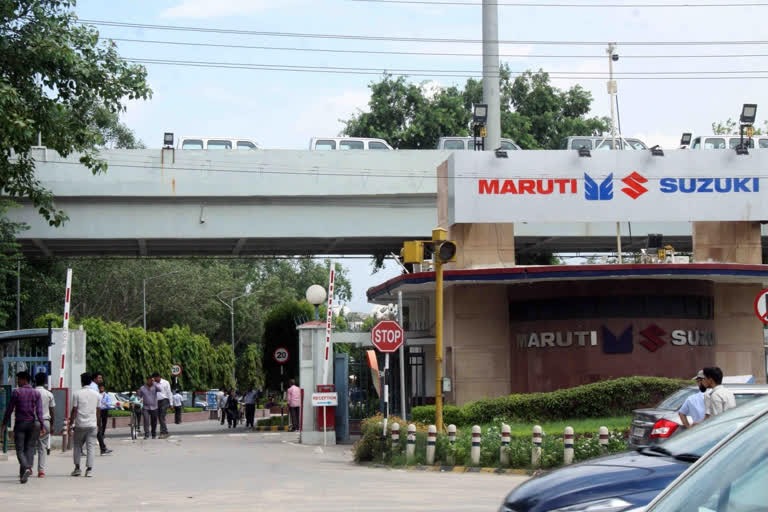New Delhi: Automobile manufacturers must cut down the cost of electric vehicles to drive their sales, Minister for Road Transport & Highways, Nitin Gadkari on Friday told industry leaders, adding that the government was already supporting the electric vehicle manufacturers by giving several concessions including GST concession and subsidies for adoption of electric vehicles in the country.
Gadkari said automakers can reduce the cost of production by spending more in research and development and by leveraging the economies of scale that will bring down the cost of manufacturing and make EVs affordable.
“It is time for them to reduce the cost but presently they are not in the mood to reduce the cost and that is the reason that we are not getting the good sale,” Gadkari told the automakers in the Electric Mobility Conference 2020 organised by the industry body FICCI.
Advising the industry leaders, Gadkari said unless the automakers manufacture electric vehicles in large numbers they will not be able to reduce the cost of production.
“Somewhere we need to start, the government is also giving a lot of concessions in terms of GST, subsidies etc. I think now it is economically possible for a manufacturer to bring down the cost by increasing the volume,” Gadkari advised the auto industry leaders.
Out of reach
Indian consumers have always been price-sensitive and one of the reasons behind the success of Japanese automaker Maruti-Suzuki was its low priced affordable entry-level cars like Maruti 800 and Alto that gave huge volumes to the company, making it the largest carmaker in the country.
However, in recent years, the maximum sale has been coming from mid-segment cars like Suzuki Wagon-R, Hyundai Santro and slightly costlier options like Maruti Suzuki Swift, Swift Dzire and Hyundai i10 and i20 among others as Indian consumers moved up the ladder and were willing spend little more for comfort and safety.
However, unlike these cars, which are priced in the range of Rs 5-8 lakhs, electric vehicles like Tata Nexon EV, Hyundai Cona and others cost more than twice or even more.
Also Read: IFFCO, SBI join hands to provide finance, fertilisers to Indian farmers at doorstep
While different variants of Tata’s Nexon EV costs somewhere between Rs 14 lakh to Rs 16 lakh or more, Hyundai Kona EV costs Rs 23 lakh or more. The high upfront cost makes them unaffordable to a large section of Indian car buyers despite the concessions offered by the Centre and state government in terms of GST or vehicle registration fee.
It also makes faster adoption of electric vehicles in the country difficult despite the low cost of operation in comparison with diesel and petrol vehicles.
Mindful of the high cost of electric vehicles, which acts as an entry barrier for a large section of middle-class Indian buyers, the minister urged the manufacturer to reduce the prices to achieve the economies of scale.
“I will request all the manufacturers to reduce the cost, without that you cannot get the numbers and without numbers, you cannot get the economic viability,” Gadkari told the industry leaders which included Pawan Goenka, MD & CEO of Mahindra & Mahindra Ltd and Shekhar Viswanathan, Vice Chairman of Toyota Kirloskar Motor, among others.
“For the starting purpose, there may be some losses for some years but it is going to give great benefit to the manufacturers in future,” Gadkari noted.
EVs will reduce air pollution, save forex
Gadkari said the hefty crude import bill was a major problem for the country as India imports nearly 80% of its crude oil and natural gas requirement.
In FY 2019-20, India imported crude oil worth $102 billion or over Rs 7 lakh crore, which is slightly lower than half of the total net tax collection of the Centre which has been estimated at over Rs 15 lakh crore as per the revised estimate presented by finance minister Nirmala Sitharaman in this year’s budget.
Gadkari said import of crude oil was a major problem in the present situation, and in addition to that petrol and diesel vehicles also aggravated the problem of air pollution in the country.
Gadkari informed the audience that he was going to make an hour-long presentation to the Chief Justice of India and other judges on the issue of air pollution after Deepawali.
The minister also informed the audience that the government was constructing 22 new green highways in the country and it has already finalised two packages for the total 10 packages to be awarded for Bengaluru-Chennai green highway that is expected to be completed in the next three years.



